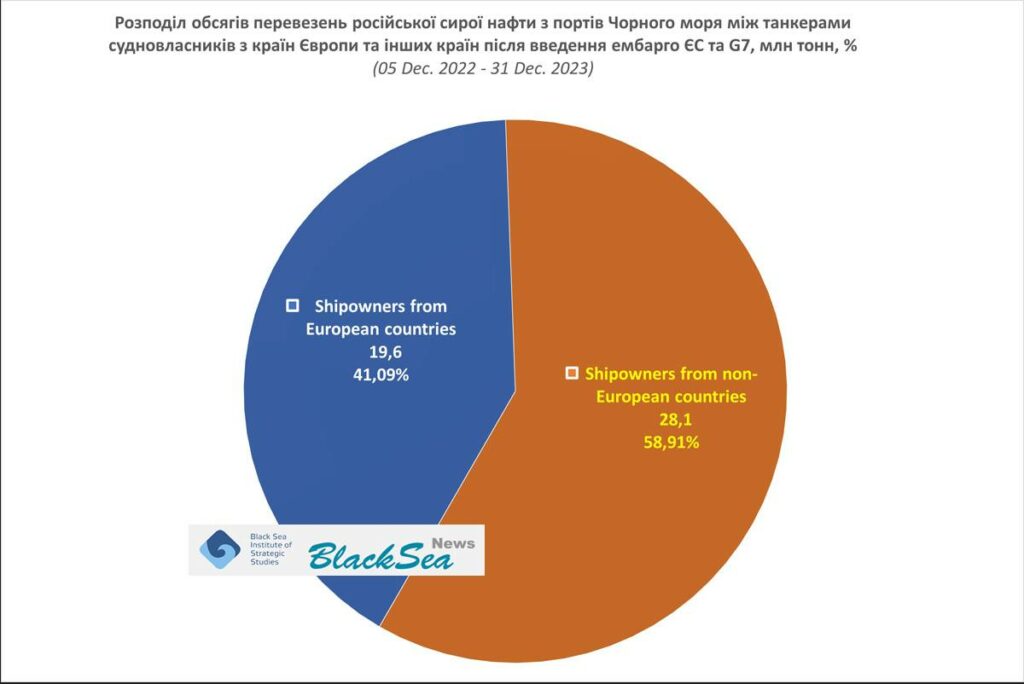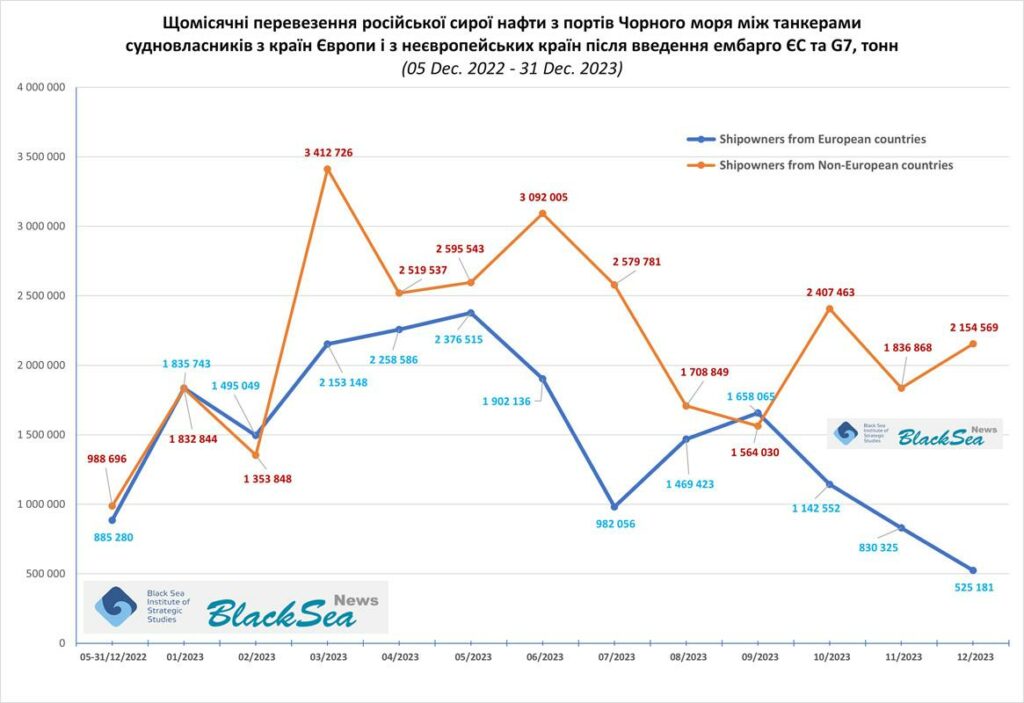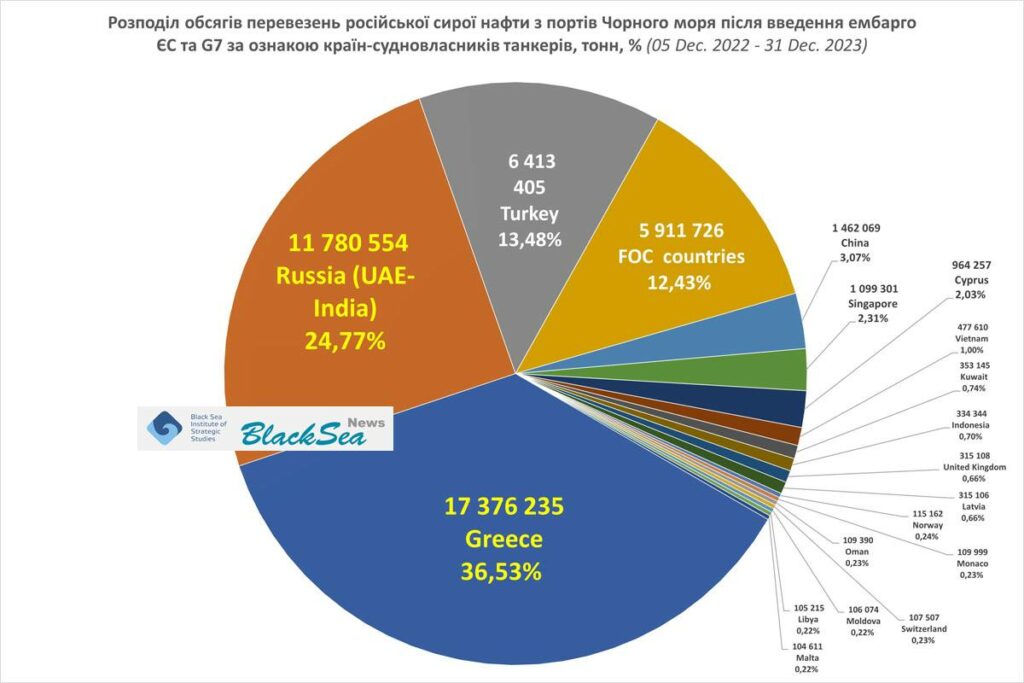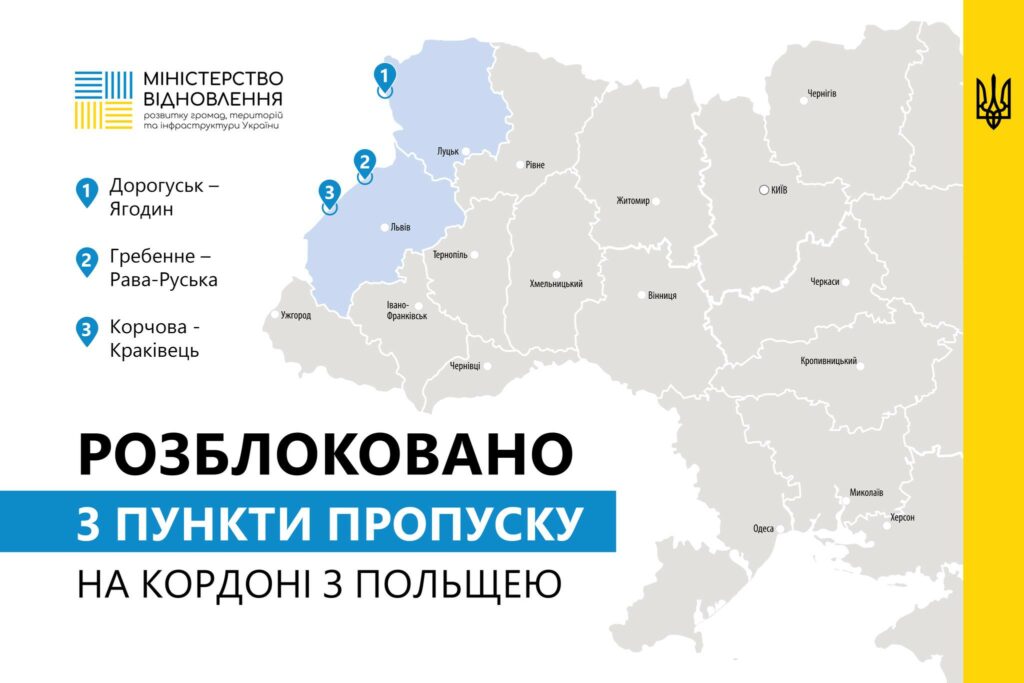Over 40% of Rosneft was transported by shipowners from the EU after the embargo was introduced
From December 5, 2022 to the end of 2023, shipowners from European countries transported 19.5 million barrels of Rosneft.
Since the introduction of the EU and G7 embargo on Rosneft on December 5, 2022, until the end of 2023, European vessels transported 19.6 million tons of raw materials from the Black Sea. This is 41.09% of all oil shipments from the Black Sea ports of the Russian Federation during this period. This was reported by the monitoring group of the “Institute of Black Sea Strategic Studies” and the editors of BlackSeaNews.

These shipments were carried out both to EU countries despite the embargo and to other countries of the world where the ban on Rosneft does not apply. Accordingly, 28.1 million tons of raw materials (or 58.91%) were sent to third countries.
Thus, in the first three months of the embargo, shipowners from European and non-European countries transported almost the same amount of Russian crude oil. Starting from March 2023, a significant advantage in the volume of transportation passed to ship owners from non-European countries.

However, in general, for the entire period, the first place in terms of the volume of transportation of Russian raw materials was taken by Greek shipowners — 17.4 million tons, or 36.53% of all transportation. In second place are Russian companies, including those registered in the UAE and India. Their share in transportation amounted to 24.77% with a volume of 11.8 million tons.
The third place in terms of Rosneft transportation volume was taken by Turkey — 6.4 million tons, or 13.48%. The ranking is followed by companies registered in Liberia, the Marshall Islands and the Seychelles.

Previously, USM wrote that in the last months of last year, the volume of shipments of Russian crude oil decreased significantly. Also recently, the UAE banned the passage of some tankers that can carry Rosneft.




